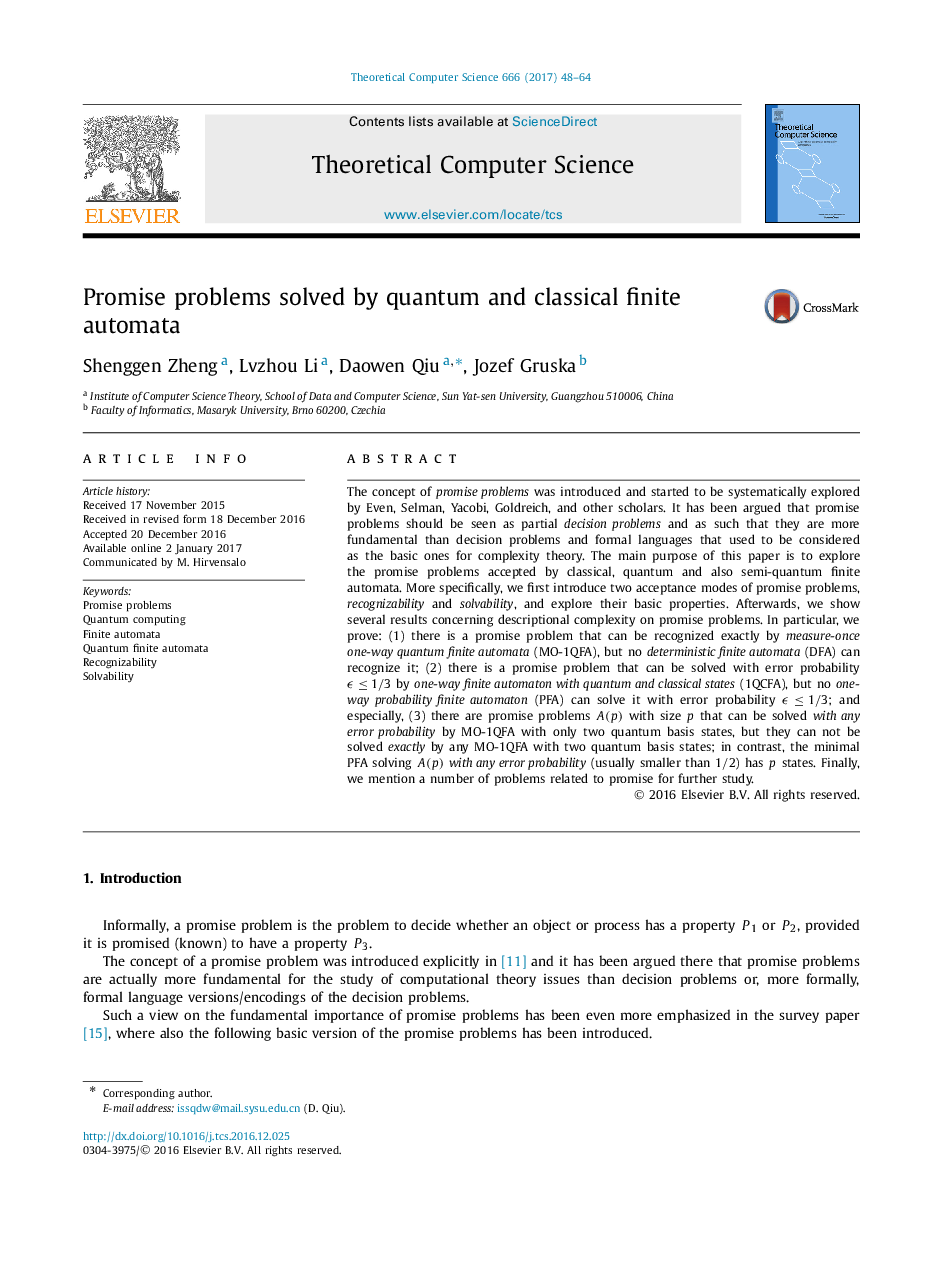ترجمه فارسی عنوان مقاله
مشکلات وعده حل توسط اتوماتای محدود کوانتومی و کلاسیک حل شده است
عنوان انگلیسی
Promise problems solved by quantum and classical finite automata
| کد مقاله | سال انتشار | تعداد صفحات مقاله انگلیسی |
|---|---|---|
| 133851 | 2017 | 17 صفحه PDF |
منبع

Publisher : Elsevier - Science Direct (الزویر - ساینس دایرکت)
Journal : Theoretical Computer Science, Volume 666, 1 March 2017, Pages 48-64
ترجمه کلمات کلیدی
وعده مشکلات محاسبات کوانتومی، اتوماتای محدود اتوماتای محدود کوانتومی، شناسایی، قابل حل بودن
کلمات کلیدی انگلیسی
Promise problems; Quantum computing; Finite automata; Quantum finite automata; Recognizability; Solvability;

